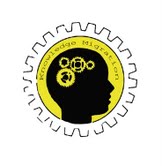We have a treat for you today: Emma Morgan-Thorp has written a guest post!
(Another HOOK&EYE post)
It seems like February is getting everybody down: technologies are failing, and everyone’s snowed under by both work and weather. I was feeling tired and grumpy when I arrived at my ‘Indigenous History’ seminar the other week, and wishing I could burrow under my covers with a book instead. This seminar, though, is healing: six women around the table, five first year Masters students and our teacher Paula, talking through Indigenous ethics and methodologies while we tell stories about our families, our work, and the places we come from. And on this particular evening we were graced with a visit by the fabulous Manulani Meyer. As we went around the table introducing ourselves and our projects to her, Manulani challenged us each to explain how our work was making change in the world: What is your academic work giving back to the community you are researching? I was floored – first by the question, and then by the fact that no one had ever asked me that before.
Lately I’ve been struggling with whether I ought to be doing academic work at all: entering an Indigenous Studies department allowed me to sidestep uncomfortable processes of asking permission to learn from Indigenous elders, activists, and communities. I still have no idea how I would even go about making such requests. Working from the sterility of the classroom, no matter how humbly or respectfully, is a far cry from finding ways to educate myself that don’t rely on my membership in an exclusionary colonialist institution.
I’ve been finding myself thinking: I’ll learn about Indigenous Studies – along with my interlocking projects of feminism, performance theory, and theatre studies – this year in the MA, and then take my knowledge out into the world and find ways to work toward substantive change. First theory, then praxis. First I’ll build myself into an educated activist, and then I’ll act. But Manulani and Paula challenged us to do intellectual work that is practical. Academic production that works through ideas and builds strategies for substantive change.
I am blessed with revolutionary friends in activist, artistic, care-giving and food-growing communities who challenge my participation in this academic institution regularly. When I was home this winter, my mom gave me Jessica Yee Danforth’s Feminism for Real: Deconstructing the Academic Industrial Complex of Feminism and told me how relieved she was that I had asked for it. A step, we laughed, toward throwing myself off the ‘great white phallus of the ivory tower’.
What Manulani affirmed is that intellectual work – in or out of the academy – can be practical activist work. That it has to be. That there is value in taking time to arm oneself with the lessons needed to do the best work possible, but that revolutionary work doesn’t wait while that happens.
During our mid-seminar break, my friend Erin and I were talking about how lucky we felt to be in such a warm community of women, talking about making change through peace and healing. The vulnerability and strength with which we were sharing our stories and questioning the work we’ve turned our lives toward shook and stabilized me simultaneously. This is, as Erin said to me, how we decolonize academia.
I’m still figuring out how best to work toward change, and certainly still negotiating the spaces I inhabit within academia and within an Indigenous Studies department. I’ve been carrying with me the blissful energy and the ethical challenges that Manulani brought into our classroom, and as I work through these ideas, I remember what she said to us: “There is only one conversation happening on the planet: how can we love better?”
-Emma Morgan-Thorp
